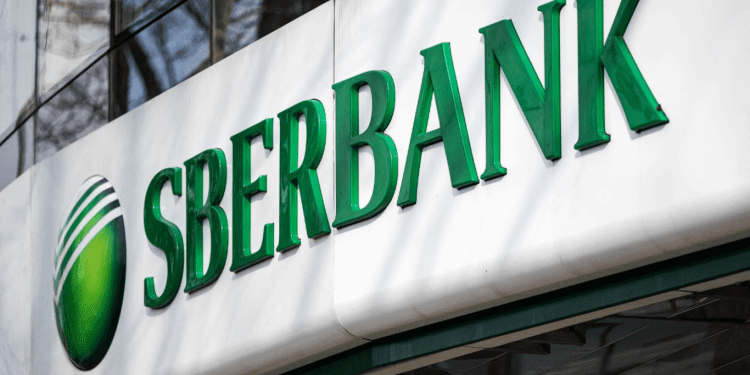Russia’s largest lender has moved into DeFi and Web3 by integrating Metamask into its blockchain platform.
Russian bank Sber, formerly referred to as Sberbank, has added support for the cryptocurrency wallet MetaMask on its blockchain. With this move, the largest bank in Russia ventures into decentralized finance (DeFi) and Web3 by integrating its blockchain platform with the Ethereum blockchain.
The news follows an official press release from Sber on November 30, citing the pursuit of new opportunities for its proprietary blockchain platform, including compatibility with smart contracts and applications on the Ethereum network.
In the announcement, the Russian bank says that the move would allow developers to move smart contracts and whole projects between its blockchain and public blockchain networks.
Sber Integrates with Metamask
The development also brings integration with the renowned software crypto wallet MetaMask, which facilitates interaction with the Ethereum blockchain. Because of this integration, users can now operate with tokens and smart contracts placed on Sber’s blockchain platform.
In the releases, the head of blockchain lab, Alexander Nam, says:
“Sber Blockchain Lab works closely with external developers and partner companies, and I am glad our community will be able to run DeFi applications on Sber’s infrastructure.”
Nam also explained, “The newly integrated features will help Sber to unite developers, corporations, and financial institutions to explore practical business applications of blockchain, Web3, and decentralized finance.”
Even before it was renamed, Sberbank had been actively developing blockchain products. In 2021, the bank filed an application with the Bank of Russia to launch a blockchain platform for its ‘Sbercoin’ stablecoin. The Russian central bank approved the request in spring 2022, giving Sber the go-ahead to officially announce its first digital currency deal in June. Notably, the majority shareholder at Sber is the government of Russia, which holds 50% + 1 share.
Putin Calls for an Open Blockchain-based Settlement Network
Sber’s move to integrate MetaMask on its blockchain comes at an ideal time; barely a week has passed since Russian President Vladimir Putin called for an open blockchain-based settlement network. In the declaration, Putin expressed discontentment with the monopoly in global financial payment systems.
Putin’s announcement came during an event organized by the Sberbank at the International AI Journey Conference in Moscow. While expressing his discontentment, the Russian President criticized Western sanctions, urging for a system “independent of external interference.”
An excerpt from Putin’s speech reads:
“The technology of digital currencies and blockchains can be used to create a new system of international settlements that will be much more convenient, absolutely safe for its users, and, most importantly, will not depend on banks or interference by third countries. I am confident that something like this will certainly be created and will develop because nobody likes the dictate of monopolists, which is harming all parties, including the monopolists themselves.”
From the announcement, it appears that Putin is confident about the role of digital currencies-based technology in driving independence from banks. Meanwhile, Putin’s administration has put a blanket ban on payments with Bitcoin since early 2020, thereby discouraging citizens from using crypto as payment.
Putin also opined that global payments and nations are at risk because of the strained relationship between Russia and the West in light of the Ukraine invasion. In his words, the “sanctions imposed by the countries are illegitimate restrictions,” adding that the current system of international payments is costly.
According to Putin, only a narrow club of states and financial groups control the system of its correspondent accounts and regulations, which he finds limiting.
A day before the Moscow event at the International AI Journey Conference in Moscow, local Russian media disclosed that the country’s legislatures were debating on potential legal amendments as part of an effort for the government to establish a national cryptocurrency exchange. Among those who supported the proposal were the Ministry of Finance and the Bank of Russia, both of whom are reputed for having a lot of disagreement in matters of local crypto market regulation.
There is also another development in Russia, about a bill introduced into the lower house of parliament, Russian State Duma, on November 17. The bill seeks to legalize crypto mining and legitimize the sale of whatever crypto they mine.
In this matter, chairperson of the Duma Financial Markets Committee Anatoly Aksakov said, “the passage of the law will bring this activity into the legal field.”
If this happens, it will become possible to establish a law enforcement practice on issues pertaining to the issuance and circulation of digital currencies in Russia. For the moment, however, it is unacceptable to use crypto for settlements in the country.












